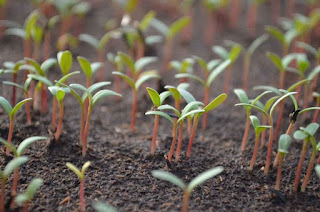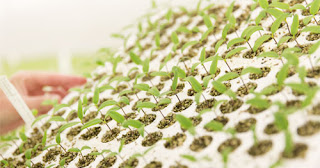Case Study: Understanding the Effect of SALICYLIC ACID on Tomato Priming
It has been found that seed priming increases the vigor of many vegetable crops
To enhance tomato seed priming under high-temperature stress conditions, seed priming with salicylic acid was examined. Salicylic acid was studied to determine how it affects tomato vegetative growth, yield, and fruit quality.
Three replications were conducted in a completely randomized experimental design. There were three levels of salicylic acid applied to tomatoes (0.25mM, 0.5mM, and 0.75mM).
High temperatures severely reduced tomato germination and vegetative and reproductive growth. Under stress conditions, salicylic acid-primed seeds improved both germination rates and germination times.
In tomato fruit, salicylic acid significantly affected the TSS, TA, vitamin C, and lycopene contents. A significant increase in tomato fruit yield was achieved with the exogenous application of salicylic acid.
Methods and Materials:
A surface sterilization study was conducted on tomato seeds with 0.01% HgCl2 for 10 minutes, followed by thorough washing with distilled water and surface sterilization with 0.1% cetrimide solution. After thoroughly cleaning the glass with distilled water, it was rinsed with clean water. Surface sterilized homogenized seeds were presoaked in distilled water and three concentrations of SA (0.25mM, 0.5mM, and 0.75%mM) as controls.
Discussions and results:
Growth of the vegetative and reproductive systems
To test tomato priming under two sets of temperature conditions, two sets of experiments were conducted. Under controlled conditions (15.150C-27.120C), the genotype produced the highest percentage of plant height, fruit weight, and overall yield. Under stress conditions, 0.5 mM concentration of SA significantly increased vegetative and reproductive growth. It reached a height of 120.31cm at its maximum. SA concentrations below a very low level did not affect plant height.
Studies have shown that exogenous SA application during tomato priming may result in a wide range of responses, including increased height, fruit weight, and fruits per plant
Plants sprayed with lower concentrations of salicylic acid produced more fruit in cucumbers and tomatoes. At lower concentrations (50M), Singh and Singh (2008) found that SA significantly increased chlorophyll content and non-structural carbohydrate content (TNC). The effects of salicylic acid were inhibited at higher concentrations, however.
Conclusion:
Several factors reduced tomato plantlet growth and priming under high-temperature stress, according to this study. Salicylic acid pretreatment of tomato seeds significantly improves germination and plantlet growth under stress conditions, increasing the germination rate and speed of the seeds.
Heat stress in tomato seeds was most effectively alleviated by pretreatment with 0.5mM salicylic acid. Because SA mitigates the damaging effects of stress factors in plants under certain conditions, it might be a very promising compound for reducing tomato plants' heat stress sensitivity.



Comments
Post a Comment